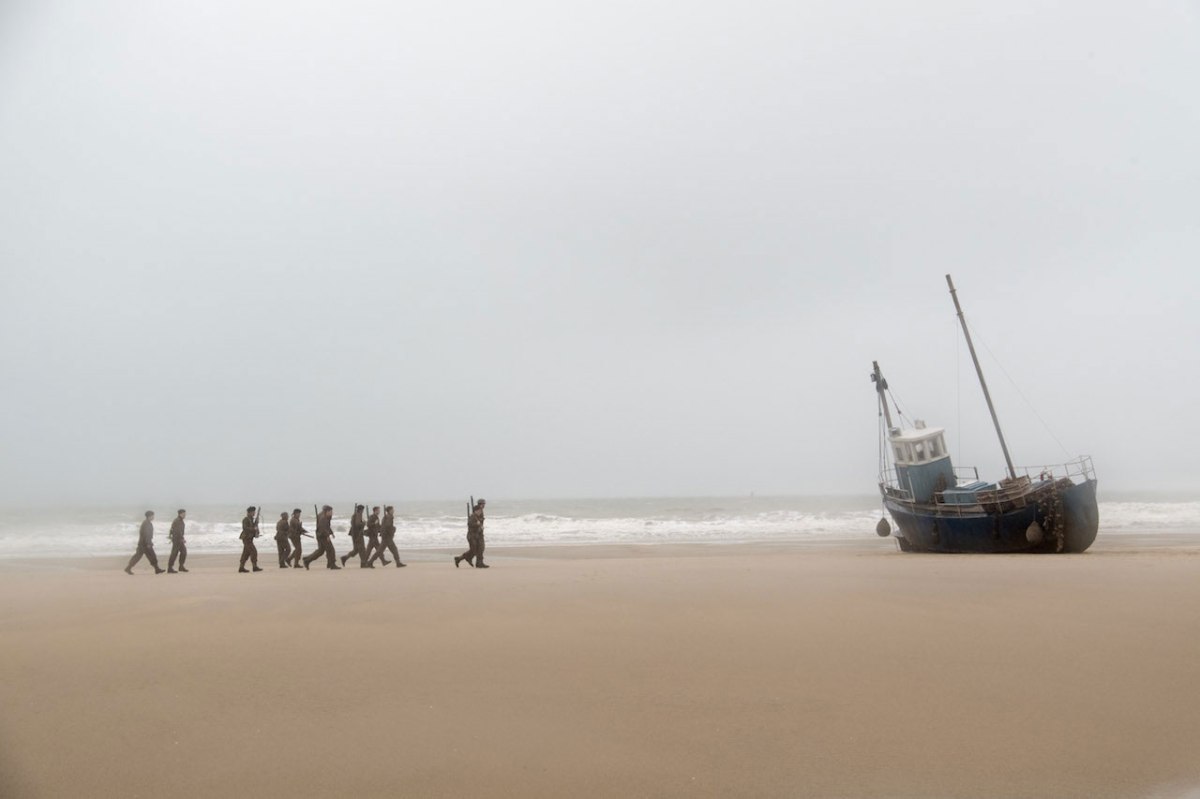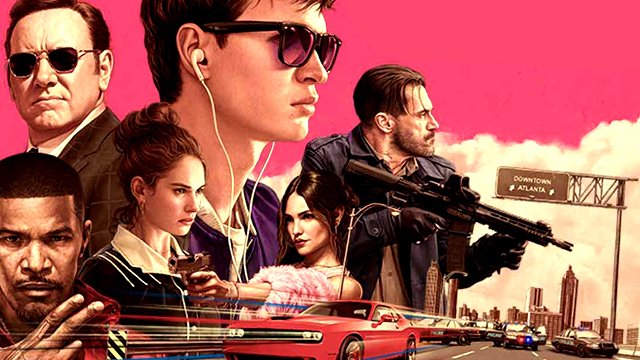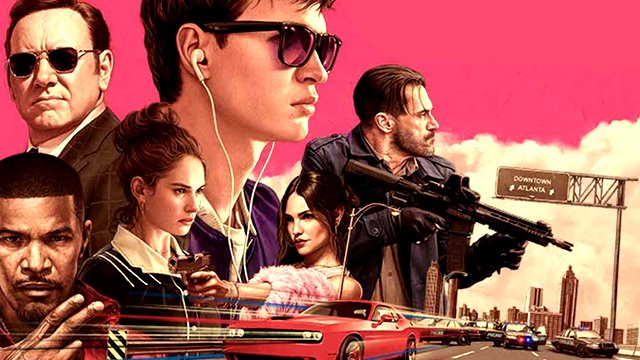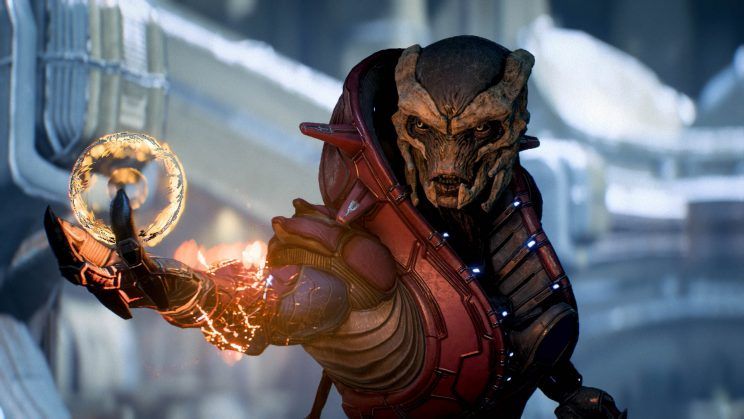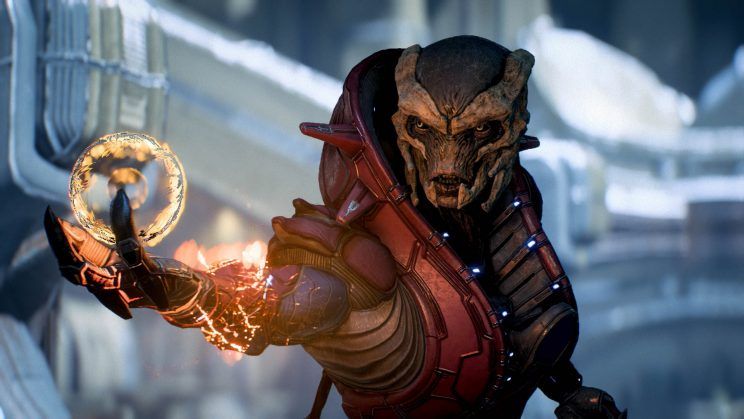I’m in love with the opening shot of Christopher Nolan’s Dunkirk. After a pitch-black title card, we smash-cut immediately to six soldiers wandering abandoned streets in a daze, being showered by flyers that read “surrender and live”. Everything about it, from the sudden brightness to the air of desolation, is disorienting, but for a moment its oddly, eerily beautiful. Then the gunshots come, and terror with them. A lot of Dunkirk is beautifully filmed horror, but that disorientation finds its way into the narrative structure and tears it apart somewhat. It serves some purpose to the mood of the film, but does away with a most of the emotional investment and poignancy along the way.
One aspect is worth praising unreservedly right out of the gate: Hans Zimmer’s score drives this movie, and in many ways the video feels like it serves the music rather than the other way around. There are perhaps two quiet moments in the entire film, but otherwise, the score is constantly pounding, sometimes reduced to ambient drones and sometimes to a simple metronome, but always propelling the film forward.
The score is particularly important as a glue, since the film takes on a highly nonlinear structure. It’s divided into three overlaid pieces told over different timespaces; a week with a soldier trying to escape the beach, a day with a civilian ship attempting to rescue survivors, and an hour with an ace pilot defending the ships. The three stories intersect at pivotal moments, but in such a way that when the ship encounters the pilot, it’s intercut with scenes of the pilot twenty minutes into the future. This is a risky structure, and by far the most “auteur” aspect of the film. Nolan may not have made an arthouse war film a la The Thin Red Line, but its certainly more formally daring than Saving Private Ryan.
However, I don’t think the risk pays off. In the final cut, too many climactic scenes get cut up and spliced between the three narratives, and not always with a clear emotional throughline between the action. One particular scene on a shot-up vessel should be harrowing, but instead of focusing on it during the action, we’re constantly diverted to the pilot checking his fuel gauge again. It’s one thing to ask the audience to logically follow the events, but quite another to ask us to maintain emotional investment when the narrative refuses to linger. In some aspects, the structure feels like its covering the weaker elements of the film. In particular, the sea story centers in parts around a kid who tags along with the vessel, with embarassingly maudlin and mawkish results. Additionally, he pilot’s storyline has much less going on than the other two, and effectively vanishes from the film for a good chunk, as if Nolan ran out of things to do. As a standalone story, or a continuously told one, the pilot’s lonely birds-eye view could have been touching, but instead it drags. Things are a bit more steady on the beach, but it suffers a bit from the fact that all of the British soldiers look exactly the same, which made it sometimes more difficult to follow than it should have been.
But Dunkirk does have its moments. Nolan stages some beautiful shots; my favourite is perhaps a sinking ship filmed in the ship’s frame of reference, with its mast still straight while walls of water come at it from the side. And even with the excessive cutting, there are some incredibly tense scenes here, notably three which make drowning feel real and deeply terrifying. When it reaches those moments, Dunkirk is as good as the best war movies ever made. For the most part, its just kind of a mess.
C
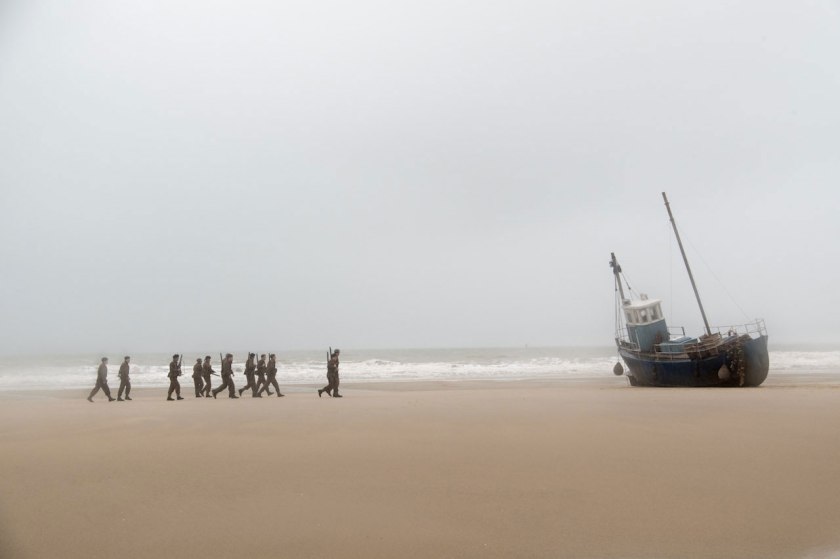
Dunkirk (2017)
Directed by Christopher Nolan
Starring Fionn Whitehead, Tom Hardy, Cillian Murphy, and Mark Rylance
Rotten Tomatoes (92%)
Note: In the theater I saw it in, one of the speakers started acting up a bit towards the end. I cannot stress enough how much of Dunkirk relies on sound, so this definitely affected my viewing experience. If you can’t see it in a big theater, at least make sure to see it somewhere with one heck of a subwoofer.
